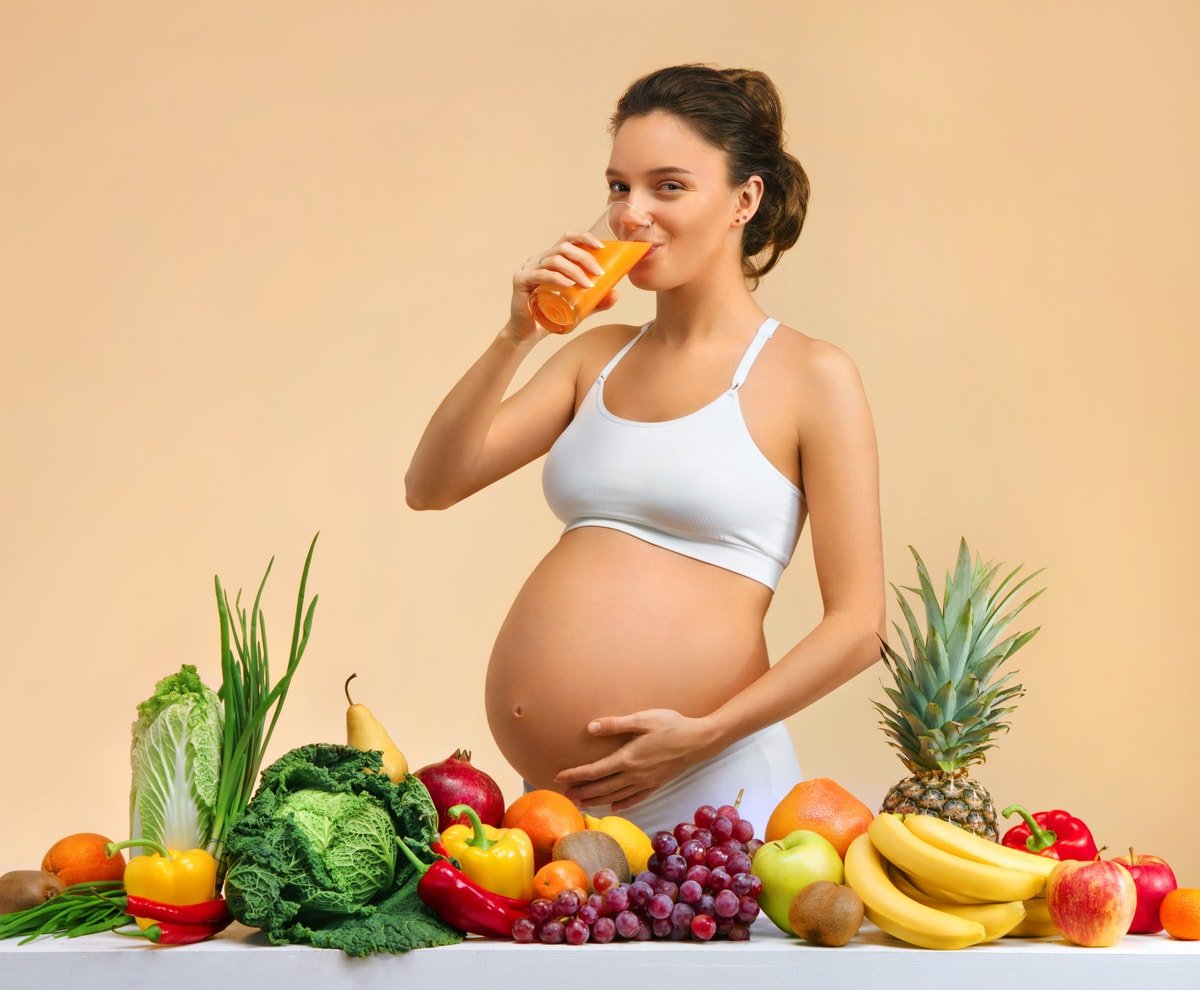
Juice cleanses are a great way to boost your immunity and give you plenty of valuable vitamins and nutrients. Having the proper nutrition is essential, but even more so when you are pregnant. Eating the right balance of fruits and vegetables can not only boost your immunity during pregnancy but can also help your fetus develop into a healthy baby.
Certain foods can help with brain development and digestive health and help build and maintain strong bones. While eating the right nutrition during a healthy pregnancy certainly has its benefits, it is essential you take the proper precautions, especially while juicing, to ensure that you and your baby stay safe and healthy.
Table of Contents
Juice Cleanses
Juice cleanses are a way to help boost your immunity, improve your organ health, and give your body some much-needed vitamins and minerals. All-juice diets and cleanses are a popular option because they detoxify the body and reintroduce some vital nutrients. People decide to start a juice cleanse for many reasons, but common reasons include improving overall health and weight loss. For some people, juice cleanses consist of only fruit or vegetables that are pureed to make a smooth juice, while other diets may include a juice smoothie with protein powder or yogurts added to the mix.
Why Are Cleanses So Popular?
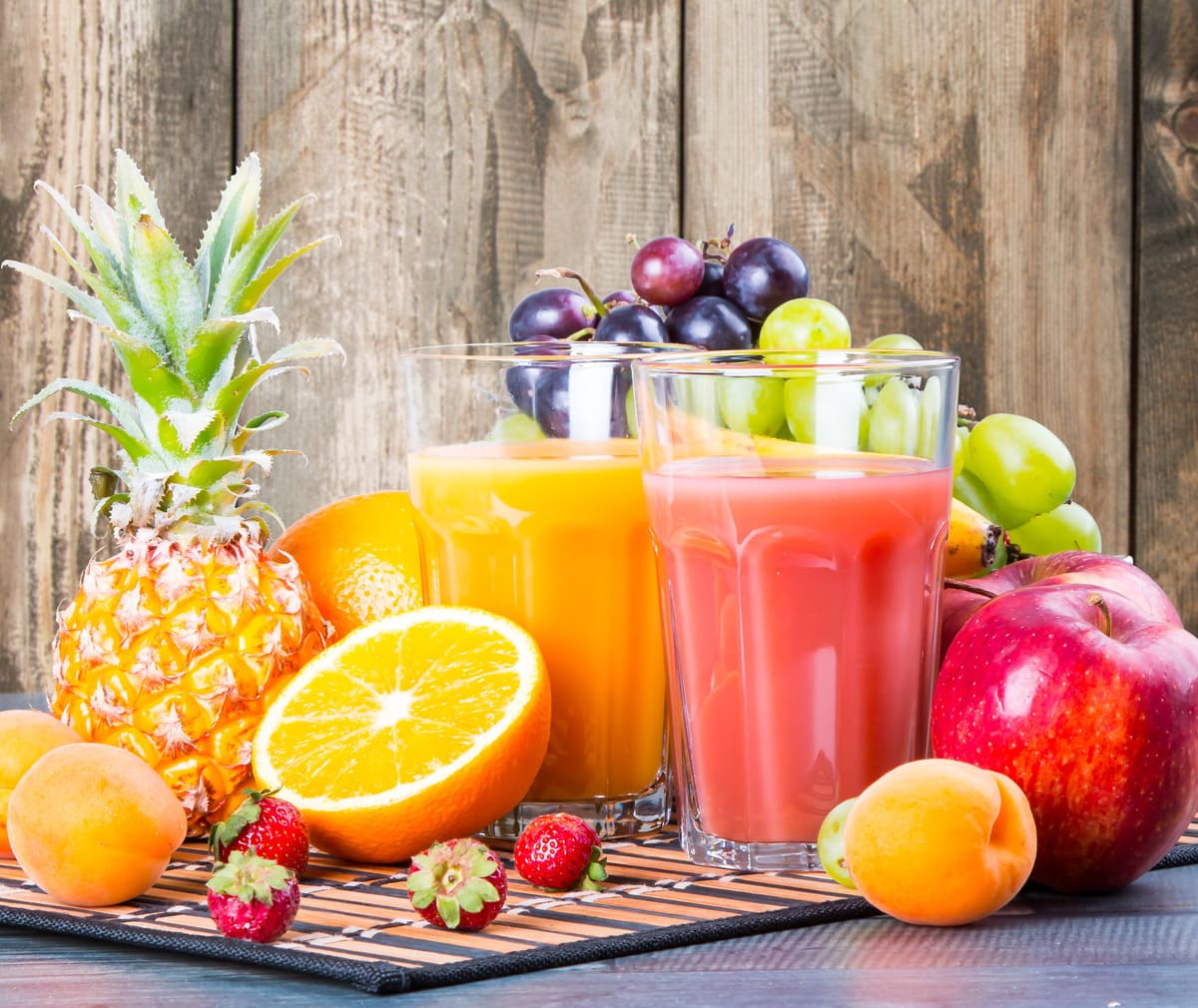
This popular diet is spreading through the world because of the many benefits associated with a juice cleanse. Switching to an all-juice diet is delicious and has many ongoing health benefits. A juice cleanse can help detoxify the body and help improve immunity and boost organ function. Plus, a juice cleanse adds loads of vitamins and minerals to your daily diet, which can make you feel better and stronger with more energy. Using a juicer to prepare your foods, you can start a juice cleansing to use as a great weight-loss tool, and many people find they can shed weight by switching to this low-calorie but nutrient-rich diet. Specialized juicing can help improve common health conditions and ailments like eczema, IBS, and even certain bacterial infections.
Juicing is also popular because it is easy to do. Preparing juice meals only takes a few minutes, and juices can be made in bulk and kept cool until mealtime. Juicing is a straightforward process, and people can include as much or as little juice in their diet, making it a purely customizable option. Even adding just one juice per day to supplement another meal is a great way to get the added benefits of the loaded fruits and vegetables.
What Are the Pros and Cons of a Juice Cleanse?
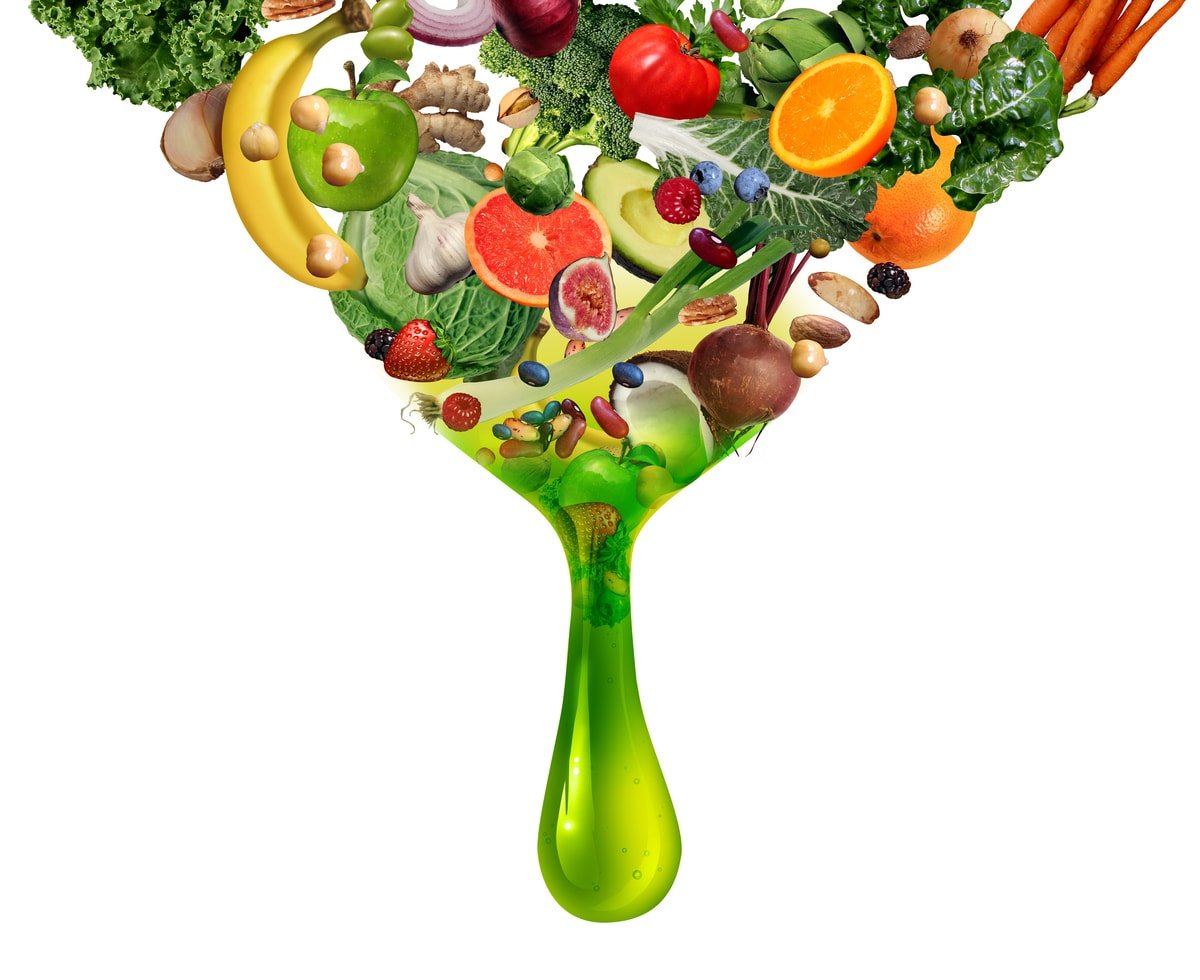
A juice cleanse is a great way to increase your intake of beneficial key nutrients, vitamins, and minerals. Fruits and vegetables are rich in vitamins containing your essential nutrient intake, and eating them in a raw and condensed form can make it easy to get your essential daily intake. Many people who juice love the benefits of this diet and continue to partake in periodic juice cleanses to help boost their immunity, improve their digestive health, increase organ function, and potentially lose weight. A juice diet also helps eliminate dangerous toxins from the body, leaving you feeling refreshed and energized. Removing toxins allows your digestive organs, like the liver and kidneys, to work better and more efficiently. Juicing can be done as a simple supplementary meal or can be done as a fast extending for as long as three days. While pregnant, though, an extended fast is not recommended, but simply adding a single juice to supplement a meal should give you enough added benefit to keep you safe and healthy.
While the benefits of juicing far outweigh the negatives, there are some negative impacts to be aware of. Juicing is an extremely low-calorie diet that can make people feel weak or tired. Many people who are juicing for the first time report having a headache or chronic fatigue. Doing a juice fast for an extended period or too close together can cause significant health problems for your entire system. Not only can a repeated cleanse tax your digestive organs, but it can cause muscle loss and even bone density loss if repeated too often.
Can I Juice Cleanse While Pregnant?
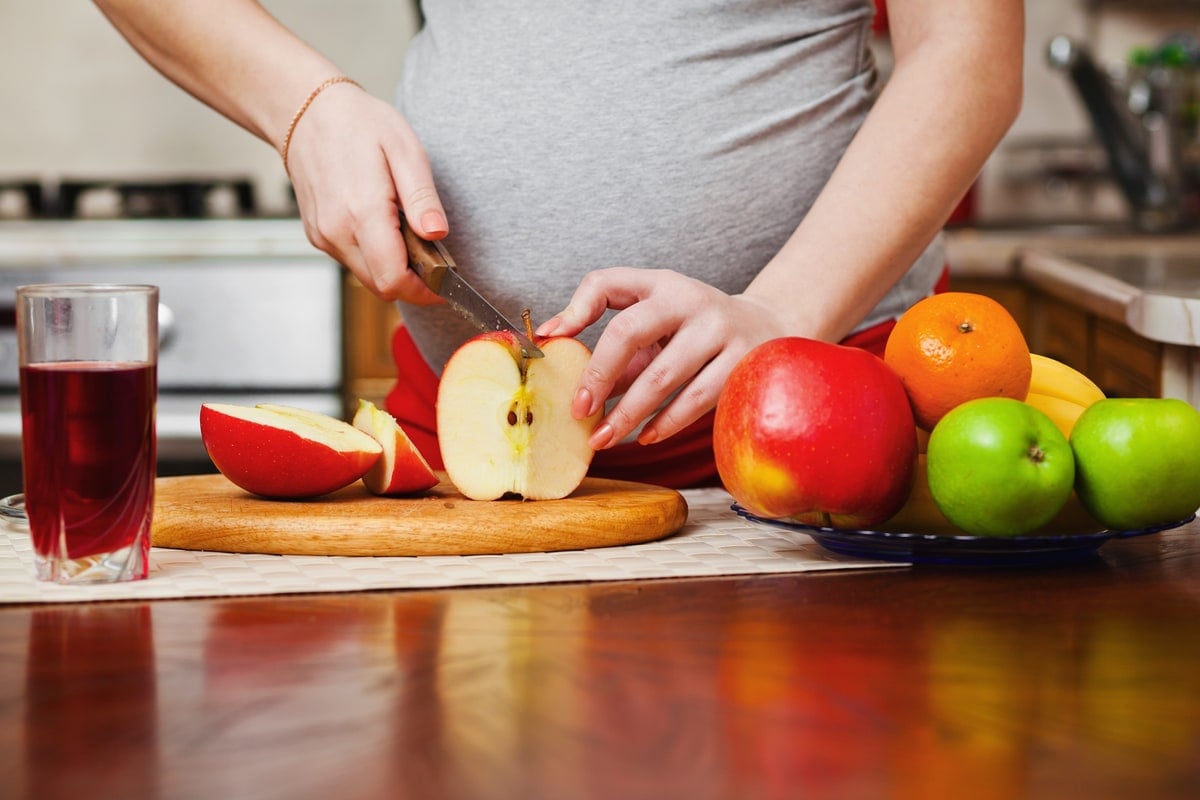
Switching to an entirely juice-only diet is not recommended while pregnant because of the limited calories and healthy fats a juice-only diet can provide. However, there are several benefits to including a healthy, raw juice meal to supplement a meal once per day. Any number of healthy fruits and vegetables can be pureed to improve both your health and the health of your baby. Juicing and pregnancy can be safe, fun, and beneficial. Juicing cold pressed juice and unpasteurized juice during pregnancy can give you your prenatal vitamin intake to keep the baby healthy.
Of course, before starting any fresh juice diet, it is best to check with your doctor ahead of time. Make sure that you and the baby are healthy enough for certain juices, and be sure to follow your doctor's advice. Juicing is a safe and beneficial way to get your needed vitamins and minerals, but it isn't for everyone. Your doctor may want to run additional tests before recommending a juice diet for you and your baby.
What Should a Pregnant Woman Avoid?
During pregnancy, women should avoid certain foods to maintain their own health and the baby's health. Common foods to avoid include undercooked or raw fish and meat or soft and unpasteurized cheeses. It's a good idea to avoid fried or processed food too. Of course, while pregnant, you should avoid drinking alcohol or high levels of caffeine to keep both you and the baby healthy. Further, while pregnant you want to follow a pregnancy diet that includes healthy foods and your essential vitamin intake. Be sure to avoid food and drink that are rich in sugar that could increase your blood sugar levels to a dangerous level. Avoid caffeine and trans fat that could compromise your immune system.
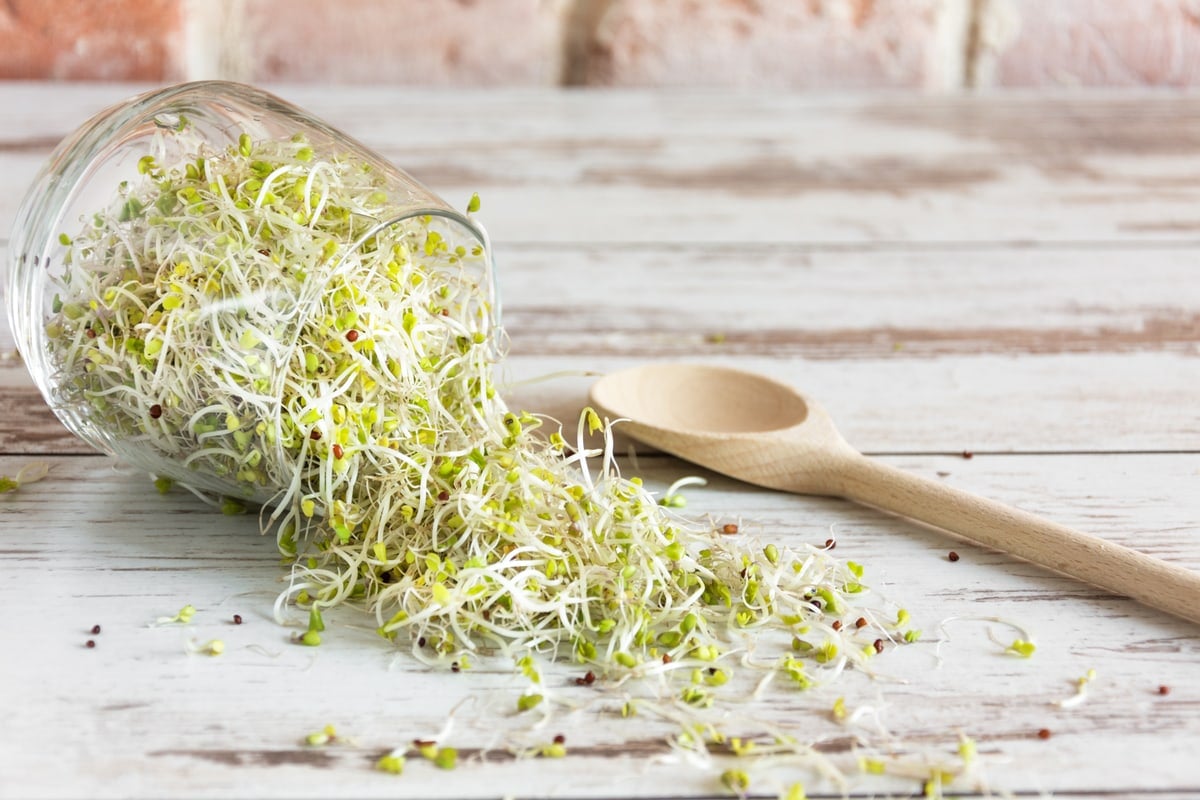
While fruits and vegetables generally are safe, it is crucial to know the risks of toxoplasma. This tiny parasite can be found in fruits and vegetables, which can be extremely harmful to both the mother and the baby. Before ingesting fruits and vegetables, it is imperative to ensure that your fruits and veggies are washed thoroughly to remove any possible toxoplasma. It is also a good idea for women to avoid eating any type of sprouts. Although the food is mainly beneficial, small bacteria can easily get inside sprout seeds and start to grow and spread. It is just about impossible to wash out the bacteria, and bacteria are possible in sprouts grown at home or sprouts purchased at the store.
What Fruits Should Pregnant Women Avoid?
Although fruits and veggies are mainly beneficial, there are a few that pregnant women should steer clear of or reduce the amount they eat. Some key fruits to avoid include:
- Pineapple - This fruit contains bromelain, which can be dangerous for pregnant women. This specific enzyme can attack the cervical wall, which can lead to miscarriage and early contractions. Avoid raw pineapples and pineapple juice
- Grapes - While grapes may still have some health benefits associated with them, they also contain resveratrol. Not only can resveratrol weaken a woman's digestive system, but in large doses, it could be toxic to pregnant women.
- Papaya - This delicious fruit is healthy but can cause your internal temperature to rise. During pregnancy, high temperatures can be dangerous and can even cause a miscarriage.
What Risks Does Juicing Have?
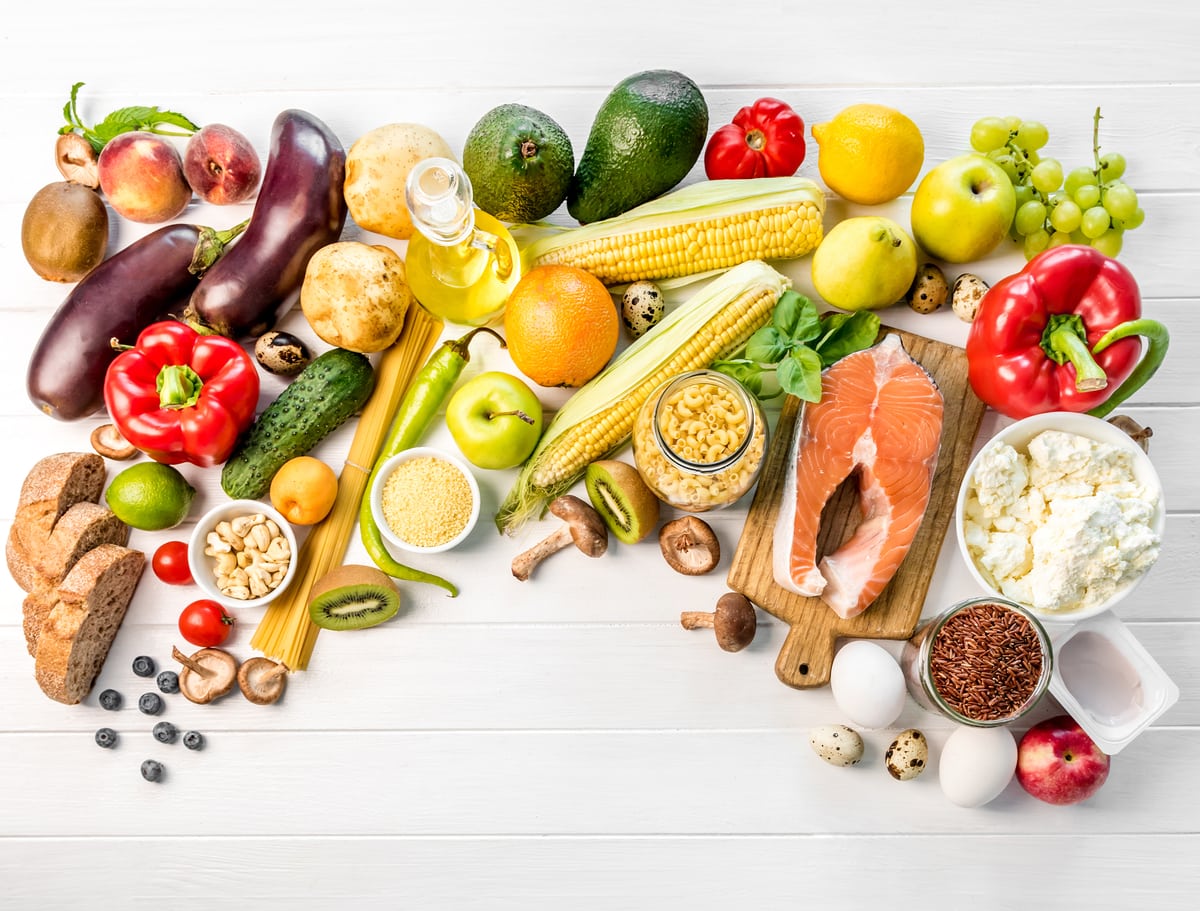
Of course, not everything is entirely beneficial when it comes to juicing, and juicing while pregnant can run some inherent risks. Switching to a complete juice diet, even for a few days, is not recommended during pregnancy. Both you and the baby require a good diet of carbohydrates and protein to stay strong and healthy. Switching to an all-juice diet can deplete the body of much-needed protein, vital to healthy development. Plus, juicing is extremely low in calories, which may make you feel even more tired, nauseous, or sick. Reduced-calorie diets do not give you the vital nutrients needed to continue to grow a healthy baby. Furthermore, there is always the possible risk of contamination or infection from eating improperly washed fruits and vegetables.
Adding just a single healthy juice every day during pregnancy, though, is a wonderful way to get the much-needed nutrients and vitamins that fruits and vegetables have to offer. Try adding fruit or vegetable juice on an empty stomach, just once per day. The added vitamins and antioxidants can help give you an energy boost and help boost your immune system, keeping you healthy through pregnancy.
Best Fruits and Vegetables for Juicing While Pregnant
Eating fresh fruit and vegetables while you are pregnant can not only help you boost your vitamins and minerals but can help you improve your overall health and your baby's overall health too. While women are pregnant, they have a lower immune system, which means they become more susceptible to catching certain illnesses.
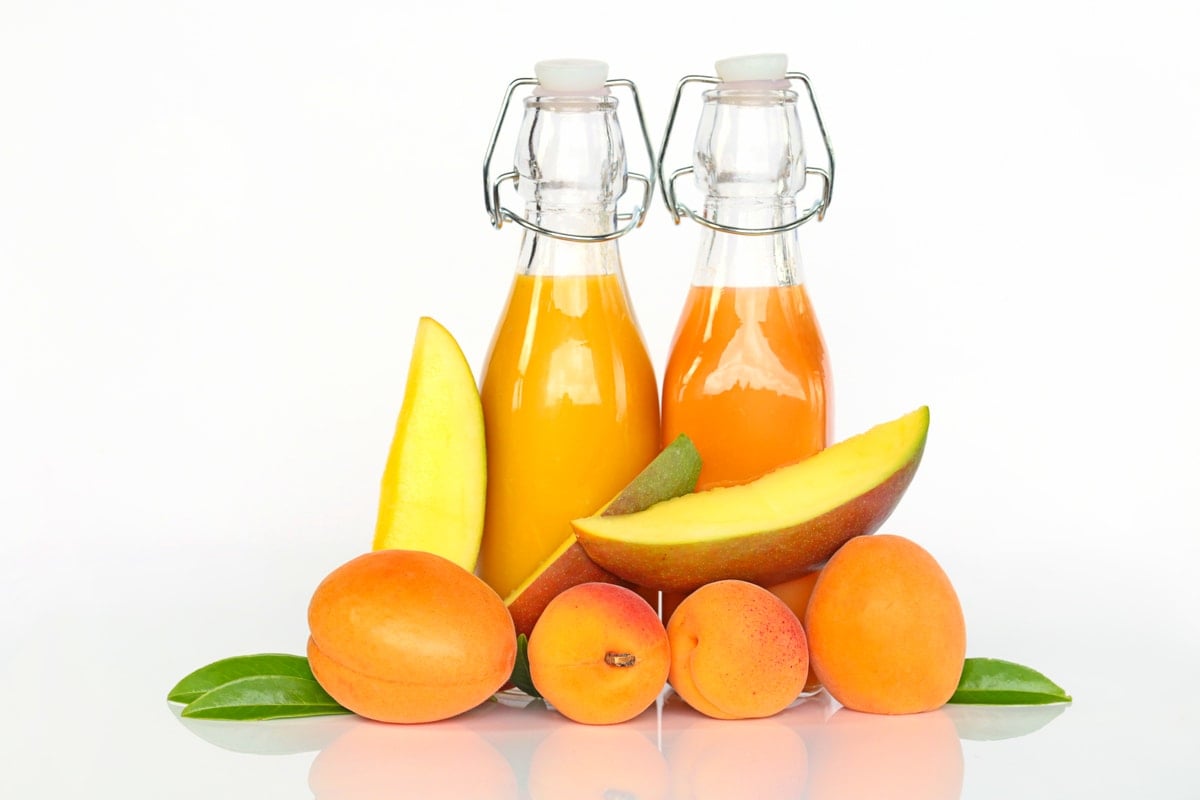
Not only can these illnesses make mama sick, but they could potentially harm the baby. Eating lots of raw fruit and veggie options through juicing is a great way to boost your immunity and increase your antioxidants. Great juices to drink include orange juice, green juice, cranberry juice, lemon juice, cucumber juice, and beetroot juice. Consider adding vegetables to your diet including leafy green vegetables like spinach or carrot. Some of the best fruits and vegetables to eat while pregnant include:
- Apricots - Not only are apricots packed full of vitamins A, C, and E, but they have loads of iron and calcium too. These nutrients can help your baby grow and ensure your baby has strong teeth and bones.
- Mangoes - Vitamin C is essential for expecting mothers, and a simple cup of chopped mango gives 100% of the recommended daily allowance. Plus, mangoes are rich in vitamin A too.
- Oranges - This citrus fruit is essential to keep pregnant women healthy and hydrated. This fruit has tons of vitamin C and can help you better absorb iron. Plus, fresh orange juice can prevent cell damage and help prevent neural tube defects.
- Pomegranate - A pomegranate is one of the healthiest foods you can eat to promote placenta health, decreasing the risk of illness or damage to your placenta during pregnancy. The pomegranate has tons of vitamin K, which makes your bones strong during pregnancy.
- Pears - Pears are high in potassium, folic acid, and fiber, all beneficial for pregnant women. Not only can pears help improve your own heart health, but they can help improve your baby's heart health too. Plus, pears give you loads of fiber which can reduce constipation during pregnancy.
- Avocados - This healthy fat is a great way to provide you with an energy boost and prevent neural tube defects at the same time. Plus, avocados can help build the brain tissue of your newly developing baby. This fruit is rich in copper, potassium, fiber, and vitamins C, E, and K.
- Bananas - An everyday staple for many people, bananas are an excellent way to reduce pregnancy-related constipation. Plus, this food is rich in B-6, which has been proven to help reduce nausea and vomiting, commonly experienced in the first trimester.
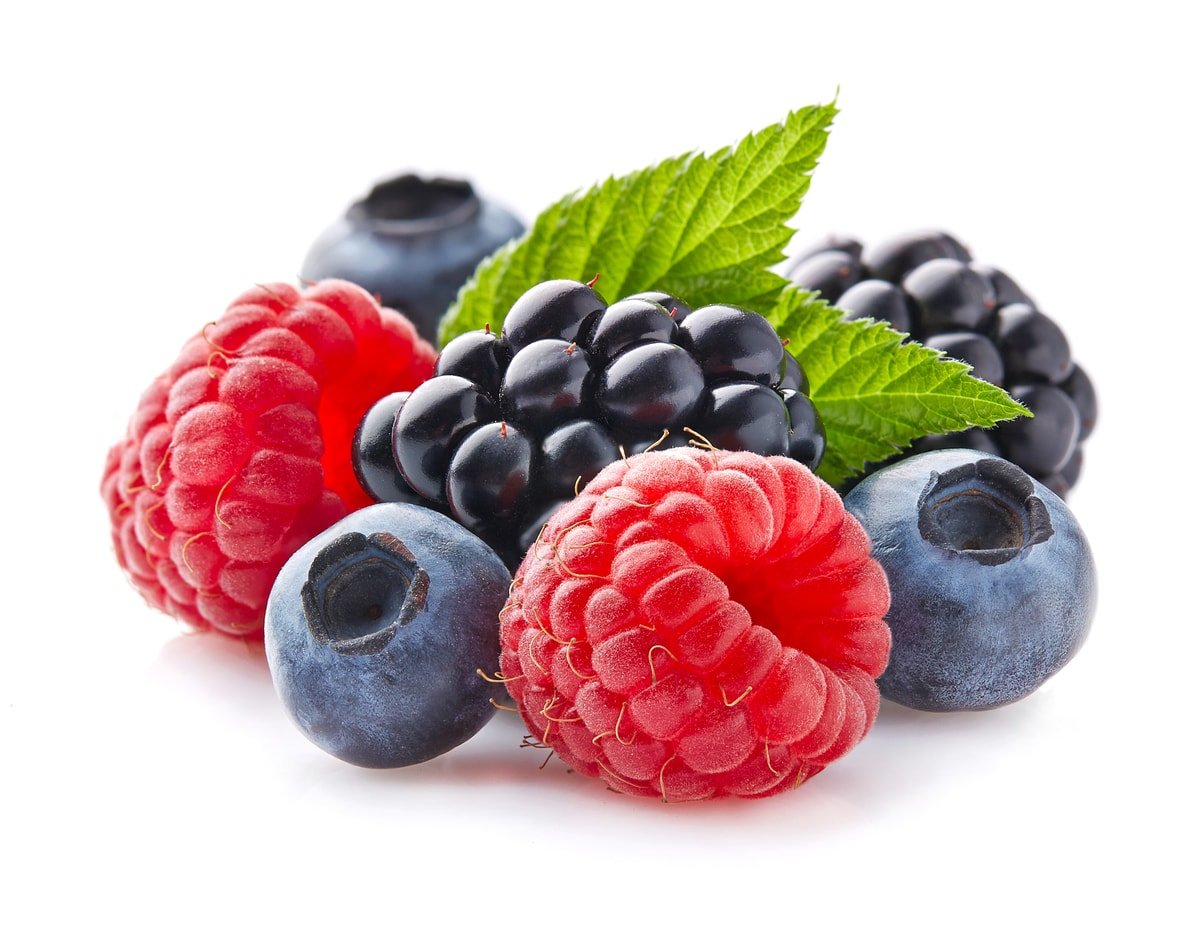
- Berries - Adding a healthy dose of berries is the perfect way to boost your body a boost of vitamin C and improve your immune system. Certain berries are high in antioxidants and provide lots of water, keeping you well hydrated throughout your pregnancy.
- Apples - If there were ever a superfood, apples would be a lead contender. This fruit is rich in fiber, potassium, and vitamins A and C. Recent studies have shown that eating apples and apple juice during pregnancy may help reduce the risk that your baby will develop allergies or asthma.
Know The Source
It is perfectly safe to continue juicing through your pregnancy, and in many cases, it is the preferred way to give your body natural antioxidants, vitamins, and minerals. To help keep you and the baby as safe as possible, always be sure you know where your fruits and vegetables are coming from. Many store-bought vegetables are safe and pre-cleaned, but as an added precaution, be sure to wash your fruits and veggies before you eat them.
If possible, buying organic juice, fruits, and vegetables is always preferred to eliminate the potential exposure to dangerous chemicals and pesticides used to kill insects. While purchasing pre-made raw pressed juice is undoubtedly an option, it is always best to make your own fruit juice, if possible, so you can be sure of every single ingredient that is added to your juice.
Sources:
https://www.pregactive.com/blog/JUICING-AND-PREGNANCY
https://www.juicingjournal.com/juicing-during-pregnancy/
https://www.merrionfetalhealth.ie/apples-pregnancy-10-potential-benefits/
https://www.fda.gov/food/people-risk-foodborne-illness/fruits-veggies-and-juices-food-safety-moms-be
https://www.webmd.com/diet/features/detox-diets-juice-up-your-health
https://www.houstonmethodist.org/blog/articles/2020/jan/are-juices-cleanses-actually-good-for-you/
https://www.hellomotherhood.com/547847-juice-fasting-pregnancy.html

Leave a Reply